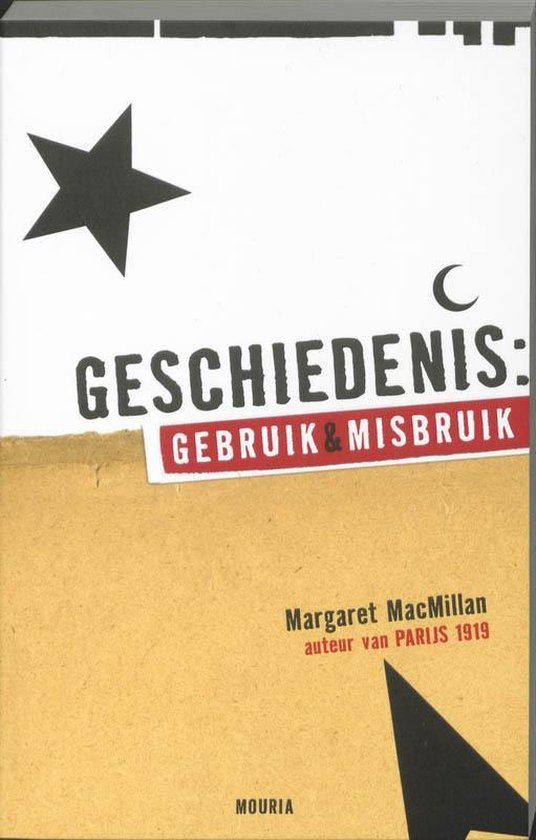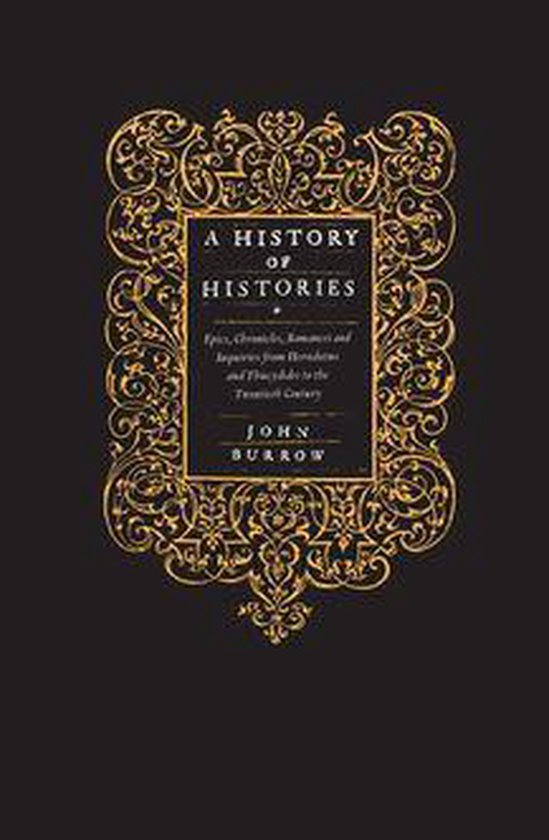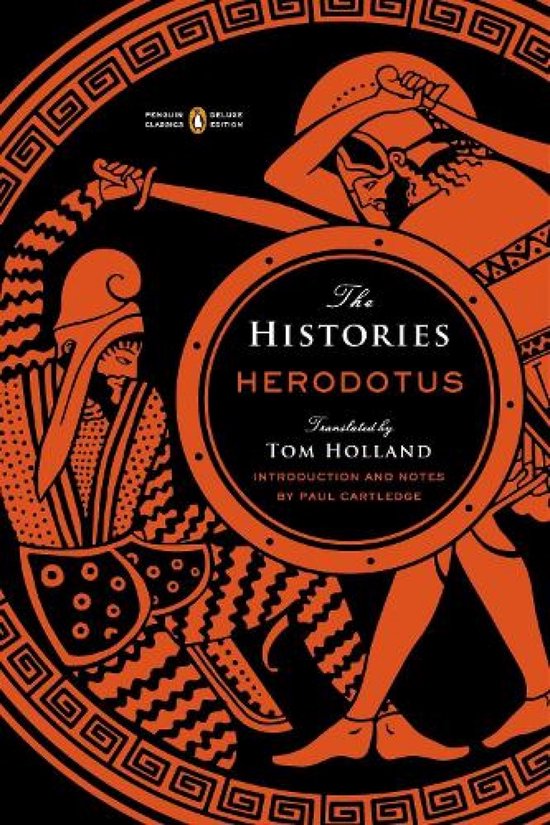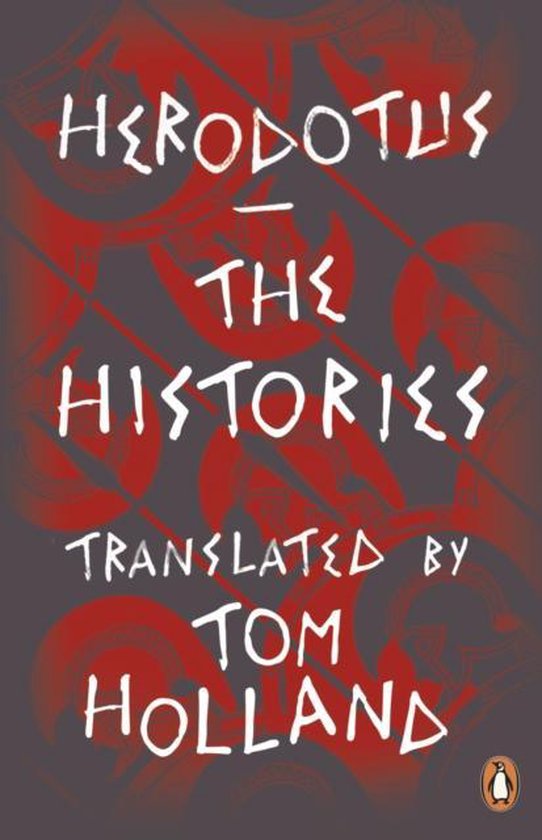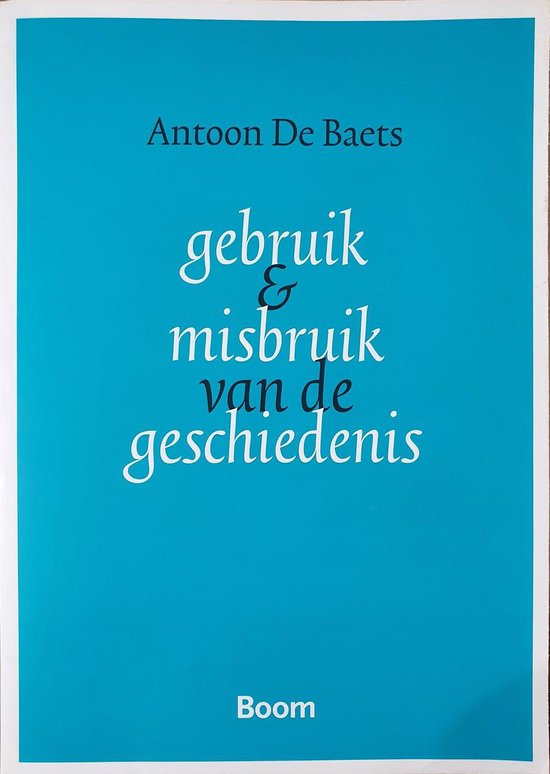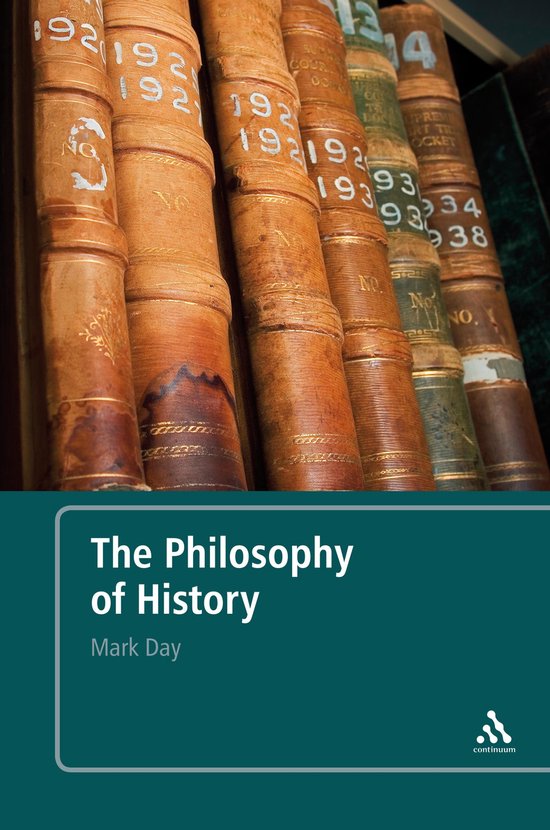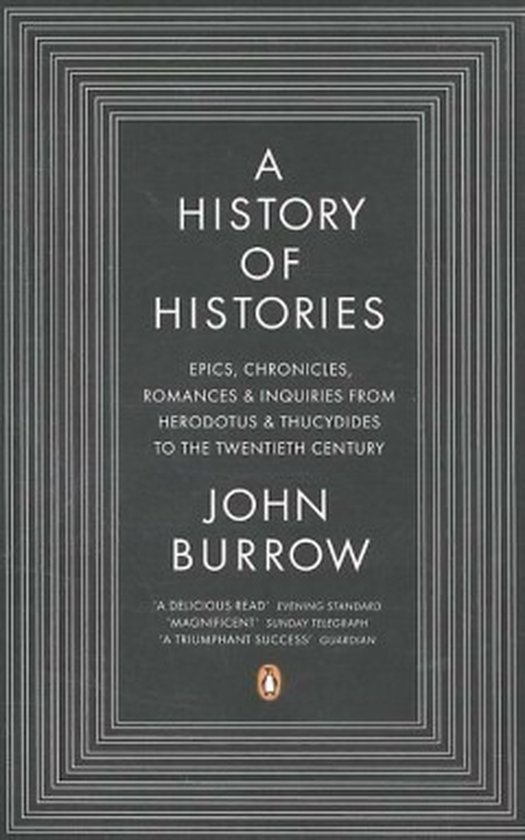
A History of Histories
Describes the intellectual impact that the study and consideration of the past has had in the western world over the past 2500 years, treating the practise of history not as an isolated pursuit but as an aspect of human society and an essential part of the cultural history of Europe and America.
This unprecedented book, by one of Britain's leading intellectual historians, describes the intellectual impact that the study and consideration of the past has had in the western world over the past 2500 years, treating the practise of history not as an isolated pursuit but as an aspect of human society and an essential part of the cultural history of Europe and America. It magnificently brings to life the work of historians from the Greeks to the present, explaining their distinctive qualities and allowing the modern reader to appreciate and enjoy them. But is also examines subjects as diverse as the new perspectives brought about by the rise of Rome, the interests of medieval chroniclers, the effects of Romanticism and the emergence towards the end of the nineteenth century of an historical profession. It sets out to be not the history of an academic discipline, but a history of choice: the choice of pasts, and the ways they have been demarcated, investigated, presented and even sometimes learned from as they have changed according to political, religious, cultural and (often most importantly) patriotic circumstances.
This unprecedented book, by one of Britain's leading intellectual historians, describes the intellectual impact that the study and consideration of the past has had in the western world over the past 2500 years, treating the practise of history not as an isolated pursuit but as an aspect of human society and an essential part of the cultural history of Europe and America. It magnificently brings to life the work of historians from the Greeks to the present, explaining their distinctive qualities and allowing the modern reader to appreciate and enjoy them. But is also examines subjects as diverse as the new perspectives brought about by the rise of Rome, the interests of medieval chroniclers, the effects of Romanticism and the emergence towards the end of the nineteenth century of an historical profession. It sets out to be not the history of an academic discipline, but a history of choice: the choice of pasts, and the ways they have been demarcated, investigated, presented and even sometimes learned from as they have changed according to political, religious, cultural and (often most importantly) patriotic circumstances.
| Auteur | | John Burrow |
| Taal | | Engels |
| Type | | Paperback |
| Categorie | | Geschiedenis |
